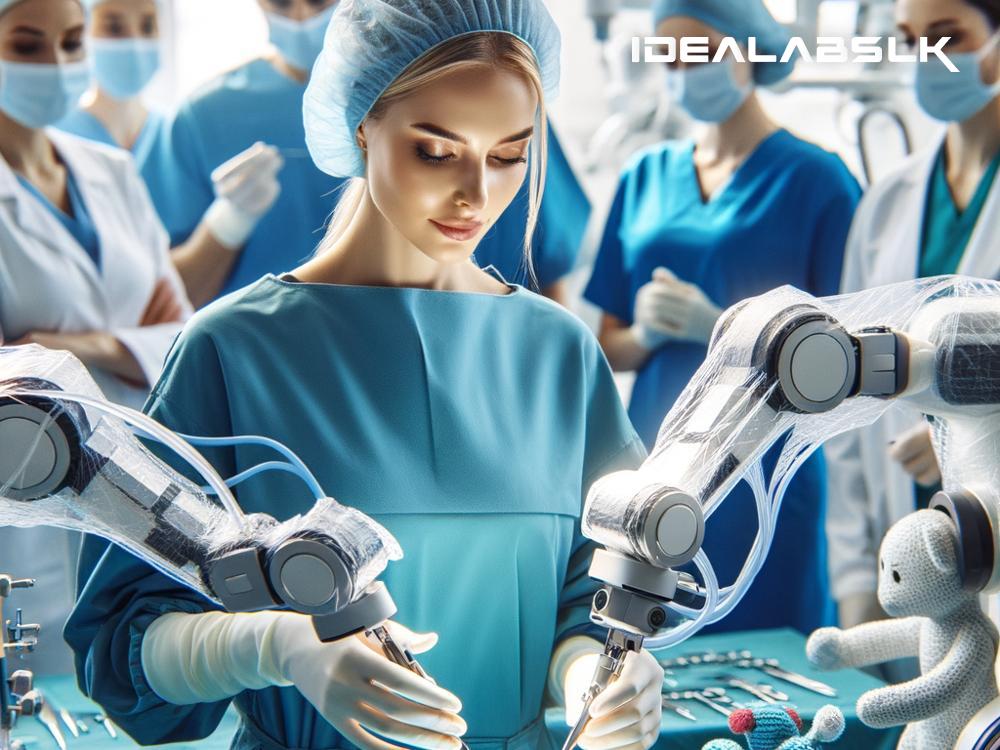How AI-Assisted Surgery is Making a Big Difference in Medical Outcomes and Speeding Up Recovery
Surgery, a word that often brings a sense of anxiety and concern. Whether it’s a simple procedure or a complex operation, the hope is always for a successful outcome and a swift recovery. With the technological advancements in the medical field, there is a new ally in the operating room - Artificial Intelligence (AI). AI-assisted surgery is revolutionizing how surgeries are performed, improving outcomes, and reducing recovery times, making the surgical experience significantly better for patients.
What is AI-Assisted Surgery?
Imagine a highly skilled surgeon performing a procedure but with an extra set of 'digital' eyes and hands that don't get tired or shaky. That's AI-assisted surgery for you. It involves using artificial intelligence technology, including robotics and machine learning algorithms, to assist surgeons before, during, and after surgery. This technology can analyze data from past successful surgeries, provide real-time guidance during procedures, and predict potential complications, all of which can contribute to more precise and effective surgeries.
Improving Outcomes
One of the most significant benefits of AI-assisted surgery is its ability to enhance surgical outcomes. Here's how:
-
Precision and Accuracy: AI systems can process and analyze vast amounts of data at speeds no human can match. They provide surgeons with precise, data-driven recommendations. This level of accuracy helps in making more informed decisions during surgeries, leading to better outcomes.
-
Fewer Complications: The precision offered by AI also plays a crucial role in minimizing the risk of complications. With AI's guidance, surgeons can make more accurate incisions, reduce the chances of infection, and avoid damaging surrounding tissues.
-
Personalized Surgery Plans: Every patient is unique, and so is their response to surgery. AI can analyze a patient's specific condition, medical history, and other relevant factors to help surgeons develop a personalized surgery plan. This customized approach can significantly improve the surgery's effectiveness.
Reducing Recovery Times
A faster recovery is not just about getting back to daily activities sooner; it's about reducing the risk of complications associated with prolonged bed rest, such as blood clots and infections. AI-assisted surgery contributes to quicker recovery times in several ways:
-
Minimally Invasive Procedures: AI assistance often makes it possible to perform surgeries using minimally invasive techniques. Smaller incisions mean less tissue damage, less pain, and faster healing.
-
Less Time Under Anesthesia: With AI’s efficiency and precision, surgeries can often be completed more quickly, meaning patients spend less time under anesthesia. This leads to less post-operative discomfort and a quicker return to normal activities.
-
Optimized Post-Surgery Care: AI doesn’t just help during the surgery; it continues to assist afterward. By analyzing data from numerous patients, AI can identify the best post-operative care practices, helping patients recover more quickly and comfortably.
Real-world Examples
Across the globe, there are several success stories of AI-assisted surgeries:
-
Robotic Surgery Systems: Systems like the da Vinci Surgical System are being used for various procedures such as prostatectomies and gynecological surgeries, providing surgeons with enhanced vision, precision, and control.
-
AI in Neurosurgery: AI technologies are assisting neurosurgeons in precisely targeting areas for surgery, reducing the risk to critical brain functions and improving patient outcomes.
The Future and Challenges
While the future of AI in surgery looks promising, there are challenges, including ensuring data privacy, addressing ethical considerations, and managing the costs associated with these technologies. Moreover, the success of AI-assisted surgeries also depends on the seamless integration of technology and the human touch, where surgeons’ expertise is complemented, not replaced, by AI.
Conclusion
AI-assisted surgery is not just a futuristic concept; it's a present-day reality making surgeries safer, outcomes better, and recovery faster. It's an exciting time in the world of medicine, where technology and human skill come together to offer hope and healing in new and innovative ways. As we move forward, the collaboration between surgeons and AI will continue to evolve, promising even greater advancements and success stories in the field of surgery. This partnership, although still in its early stages, has already begun to show how it can redefine surgical standards for the better, ensuring patients receive the best care possible.

